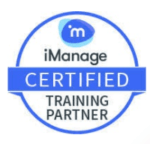

Law firms are navigating a pivotal moment in learning and development as we progress through 2025. Our recent survey of Legal Learning and Development professionals reveals an industry carefully weighing technological advancement against practical implementation, while continuing to address longstanding challenges in professional development.
IN THIS ARTICLE...
TL;DR Legal Learning and Development in Summary
This survey of L&D professionals in law firms reveals an industry navigating tech change while addressing traditional learning challenges. Most firms are in the early stages of AI adoption, with some actively using tools like ChatGPT, while others await approval for AI.
A significant finding is the gap between industry trends and actual practice regarding skills-based approaches. While there’s much discussion about skills becoming more important than job titles, approximately 80% of surveyed firms haven’t yet implemented such systems.
Time constraints and engagement remain the biggest challenges, with many respondents noting that busy professionals struggle to prioritize training. There’s also a notable disparity in training content availability across different roles, with some firms having robust programs for lawyers but less developed resources for other staff.
Looking ahead, Microsoft technologies, particularly Copilot, are expected to have the biggest impact on organizations in 2025. However, many firms are still completing foundational technology updates like Office 365 integration before moving to more advanced tools.
The findings suggest L&D success in 2025 will depend on balancing technological innovation with practical implementation while maintaining a focus on engagement and role-specific learning needs.
Let’s dive deeper into the Legal Learning and Development survey findings…
Current State of AI in Legal L&D
The legal sector’s approach to AI adoption in learning and development reflects the industry’s characteristic thoroughness and attention to detail. Most law firms and legal teams are in the early stages of AI integration, with some actively using tools like ChatGPT for reference and content creation, while others are still establishing formal approval processes for AI use.
One survey respondent captured the common sentiment: “We will be researching options in 2025. We don’t have any tools yet and AI has not been formally approved for use in the firm yet.” This cautious approach makes sense given the legal industry’s obligations to maintain confidentiality and ensure accuracy in all aspects of operations.
Where AI is being implemented, firms are finding practical applications in content creation, script development, and training material preparation. Legal teams and external presenters are increasingly incorporating AI tools into their training content development, though with varying degrees of sophistication.
The Skills versus Titles Discussion
Despite industry conversations about the growing importance of skills over job titles, our survey reveals that most law firms haven’t yet made this transition. The majority of respondents indicated they either weren’t tracking skills separately from job titles or were only using skills tracking as a supplementary indicator for annual reviews.
This gap between industry discussion and actual implementation isn’t surprising in the legal sector, where traditional hierarchies and job titles carry significant weight. However, some firms are beginning to recognize the value of skills-based approaches, particularly in areas like technology competency and specialized legal knowledge.
Core Challenges Facing Law Firm L&D
The most pressing challenge identified by survey participants is the perpetual struggle with time management and engagement. As one respondent noted, “Our users are so busy they have no time for training.” This challenge is particularly acute in law firms, where billable hours requirements can make it difficult to prioritize learning and development activities.
Another significant concern is the varying training needs across different roles within law firms. One L&D professional highlighted this challenge: “We have a lot of content for our lawyers, but our paralegals are different.” This points to the need for more comprehensive and role-specific training programs that address the diverse learning needs within legal organizations.
The impact of AI on job skills emerged as a new concern, with several respondents expressing uncertainty about how to prepare their workforce for AI-enhanced legal practice. There’s a growing recognition that firms need to foster what one participant called “an AI-literate culture,” while acknowledging that “there’s still a significant gap between awareness and practical application across all levels of our organization.”
Technology on the Horizon
Microsoft’s suite of tools, particularly Copilot, emerged as a significant focus for many firms. Several respondents mentioned ongoing Office 365 integration projects as foundational steps toward more advanced technology adoption. The emphasis on Microsoft tools suggests that firms are prioritizing integrated solutions that can work within their existing technology ecosystems.
Other technologies mentioned include Zoom’s AI companion, specialized learning tools like Camtasia for creating micro-learning sessions, and Synthesia for AI-generated avatar-based training videos. However, many respondents expressed uncertainty about which technologies would prove most impactful, indicating that firms are still evaluating their options.
Looking Forward in Legal Learning and Development
Following on from our review of the ILTA LegalTech trends report, this survey reveals an industry in careful transition, balancing the opportunities presented by AI and new technologies with the practical realities of legal practice.
Success in 2025 appears to depend on several key strategies:


- First, firms need to develop clear frameworks for AI adoption that address both the opportunities and risks inherent in these new technologies. This includes establishing governance structures and approval processes that protect client confidentiality while enabling innovation in learning delivery.
- Second, L&D teams must find creative solutions to the engagement challenge. This might involve more micro-learning opportunities, better integration of learning into daily workflows, and improved alignment of training initiatives and billable work.
- Finally, firms need to consider how they can better serve all members of their organizations through L&D initiatives. This means developing targeted learning pathways for different roles while maintaining the high standards expected in legal training.
Legal Learning and Development in 2025
The state of legal L&D in 2025 reflects an industry at a crossroads. While new technologies, particularly AI, offer exciting possibilities for enhancing learning and development, firms are rightly taking a measured approach to adoption. The focus remains on delivering high-quality training that meets the specific needs of legal professionals while navigating the practical constraints of time and engagement.
The key to success appears to lie not in rushing to adopt every new technology, but in carefully selecting and implementing tools that can address specific challenges while maintaining the high standards expected in legal education. As one respondent noted, it’s about finding “the best way and time to train” in an environment where both are increasingly precious commodities.
As Learning and Development professionals in the legal sector face these complex challenges of balancing AI adoption, engagement issues, and diverse learning needs, it’s clear there’s no one-size-fits-all solution. However, you don’t have to navigate these changes alone. We understand the unique pressures of delivering high-quality learning experiences while managing time constraints and varying technological comfort levels across your firm. That’s why we’ve developed our learning platform specifically for legal L&D teams.
Whether you’re just starting your AI journey or looking to enhance your existing programs, our technology can help streamline your content creation, improve engagement, and provide the analytics you need to demonstrate impact. Join the growing community of legal L&D professionals who are using our platform to transform their learning initiatives.
Ready to see how it could work for your firm? We’d love to show you.
Intellek (formerly TutorPro) is a founding member of the learning technology industry. With a presence in the USA, UK, Canada, and the EU – for over 30 years we have pioneered the development of cutting-edge eLearning software and online training solutions, with a large and diverse portfolio of international clientele.
Disclaimer: We use all the tools available including generative AI to create relevant and engaging content.





